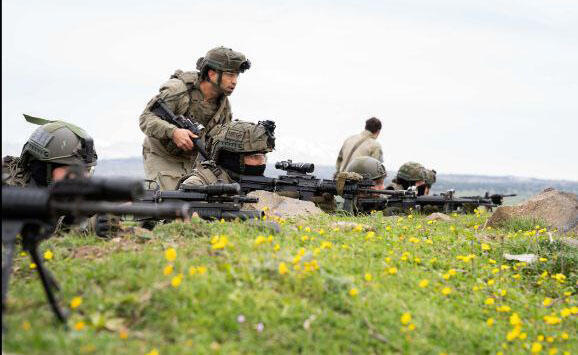The Defense Ministry has issued a tender for the purchase of domestically produced personal weapons: 20,000 M4A1 firearms, part of the M16 family, with an option to purchase an additional 20,000, Ynet has learned.
This tender is unprecedented as it requires that 51% of the weapon parts be locally manufactured and that assembly be completed in-house. So far, the IDF has acquired M16 rifles from the U.S. with aid funds. The price of such weapons is estimated to be between 4,000 to 5,000 shekels per unit. The cost will also be a significant factor in determining the tender winner.
Israeli-manufactured weapons have also been partially made from parts imported from abroad. Until now, the Defense Ministry has not limited local manufacturers on the number of domestically sourced parts out of the total components of the weapon.
In the current tender, the winner will also be required to ensure that the imported parts do not require an export license from the country of origin, aiming to avoid situations like those currently experienced with countries like Canada, which refuse to send weapons or military equipment, drones, etc., to Israel due to its operations in Gaza.
An industry source said, "The IDF wants to ensure it isn't stranded because a country decides not to send us a screw, in addition to its desire to encourage the local industry to expand its production capacity."
Another requirement in the tender: proven experience in manufacturing weapons and selling at least 1,000 firearms from the M16 family to recognized security bodies. Three companies in Israel meet these criteria: EMTAN Karmiel, IWI and Silver Shadow.
The firearms offered in the tender will undergo a model approval process and verification of compliance with requirements, after which two winners will be selected. Suppliers will be required to produce 2,500 firearms each month until the supply is completed.
The last time the Defense Ministry purchased similar weapons was immediately after the outbreak of the war, when 9,000 Tavor rifles were acquired from EMTAN Karmiel and IWI.
This tender is part of the Defense Ministry's policy, formulated after the war's outbreak, to aim for manufacturing independence in Israel for critical military products.
This came after Israel faced shortages and difficulties in purchasing equipment and weapons from international manufacturers even before the Gaza war, due to enormous demands amid the Western arms race since Russia's invasion of Ukraine.



